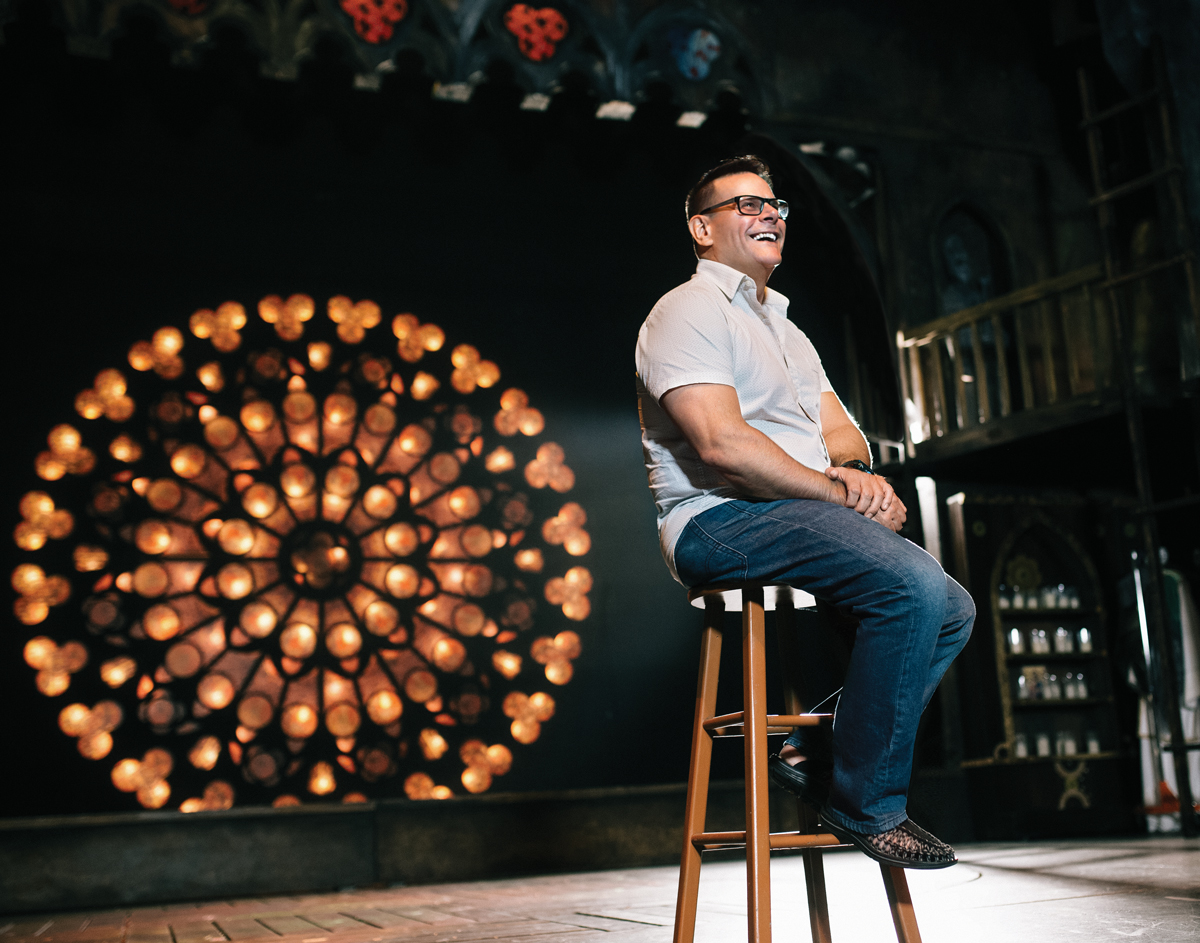TagsAnthony RodriguezAurora Theatreperforming artsTeatro Aurora
Home Lawrenceville’s Aurora Theatre finds inspiration in the diversity of its audience
A new generation of Atlanta artists takes center stage
Lawrenceville’s Aurora Theatre finds inspiration in the diversity of its audience

Photograph by Mike Colletta
Anthony Rodriguez grew up in Atlanta, the son of a Cuban bookkeeper who came to the States in 1961. In high school in the early 1980s, Rodriguez—who describes himself as half-blind and “often overweight”—found acceptance in the theater.
“The theater needs all types, shapes, sizes, and colors,” he says. “Without the vast diversity of humankind, theater could not honestly reflect life and all its beauty.”
In 1986 Rodriguez graduated from the University of Georgia with a BFA in theater, never expecting he would run one. He was a struggling actor working in the hotel business when a mutual friend introduced him to musician Ann-Carol Pence at Manuel’s Tavern. They fell in love, and with her support, Rodriguez moved to Chicago to focus on his career, performing and picking up voiceover work. When he returned to Atlanta in 1996, Aurora Theatre, then located in Duluth, was in danger of shutting down. Rodriguez and Pence bought the theater from its original owners, turned it into a nonprofit, and began catering programming to the area’s changing population.
At the time, Gwinnett was undergoing seismic demographic shifts, on its way to becoming the most diverse county in the Southeast. Between 2000 and 2010, the Latino population doubled. Today one out of five Gwinnett residents identifies as Latino.
To connect with the growing Latino population, Rodriguez established Aurora’s Spanish language theater program, Teatro Aurora, in 2004, presenting productions in Spanish and featuring Latino cultural programming. But Rodriguez also had a personal motivation: His Spanish had grown rusty, and his relatives were getting older. “I felt disconnected from my heritage,” he says now.
The program, the only one of its kind in the Southeast, presents Spanish-language plays with English supertitles twice a year. Rodriguez, Aurora’s producing artistic director, mixes up the programming with comedies, such as the 2014 production about three women Divorciadas, Evangelicas y Vegetarianas, and dramas, including Pais de Bicicleta about three Cuban refugees. Teatro’s attendance for the Spanish-language plays, which has grown to 13,000, includes entire families that come to see the plays together.
The theater also invites the community to celebrate traditional holidays like Dia de los Muertos (the Mexican Day of the Dead starting on Halloween) with storytelling, art, and an altar to remember the deceased. It has a new director of cross-cultural programs to create more events to engage the local Latino community and educational programming that introduces Latino culture to the entire community, from salsa nights to high school outreach.
In 2007 the theater moved to Lawrenceville, which now owns the playhouse while Aurora staff and its board continue to run it. Last year 70,000 patrons visited, and Rodriguez is planning on a 600-seat addition to the 254-seat main stage theater for 2020. According to annual budgets, Aurora was the fastest-growing theater in the state in the past five years, Rodriguez says.
“If we wish to have this theater continue for years to come beyond me, I can’t spend all of the time and resources programming for the audience of today,” Rodriguez says. “I have to think about the audience that’s coming.” —Tess Malone




![The North Carolina Museum of Natural Sciences’ newest exhibit is a [pre]historic first](https://cdn2.atlantamagazine.com/wp-content/uploads/sites/4/2024/04/DD-3-100x70.jpg)




